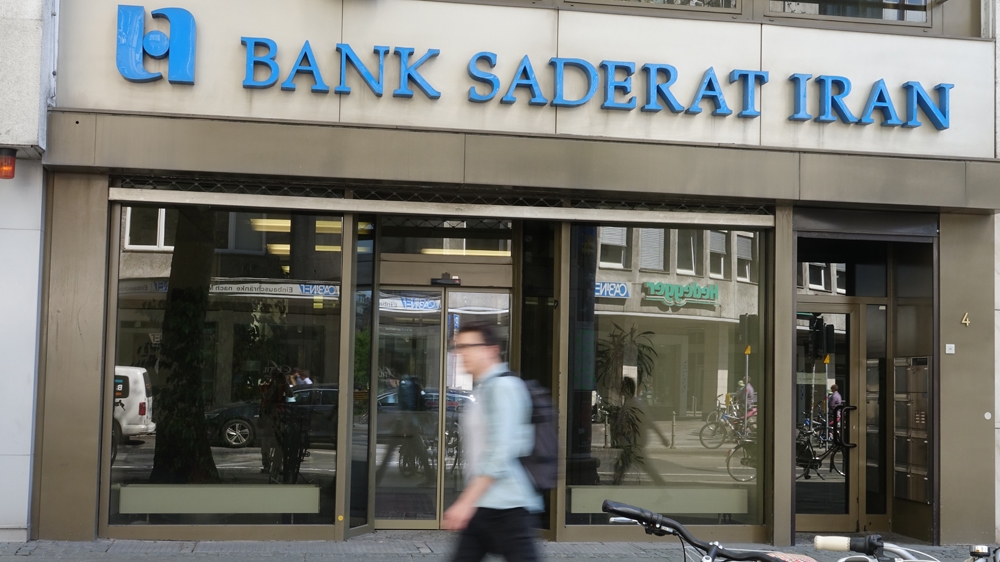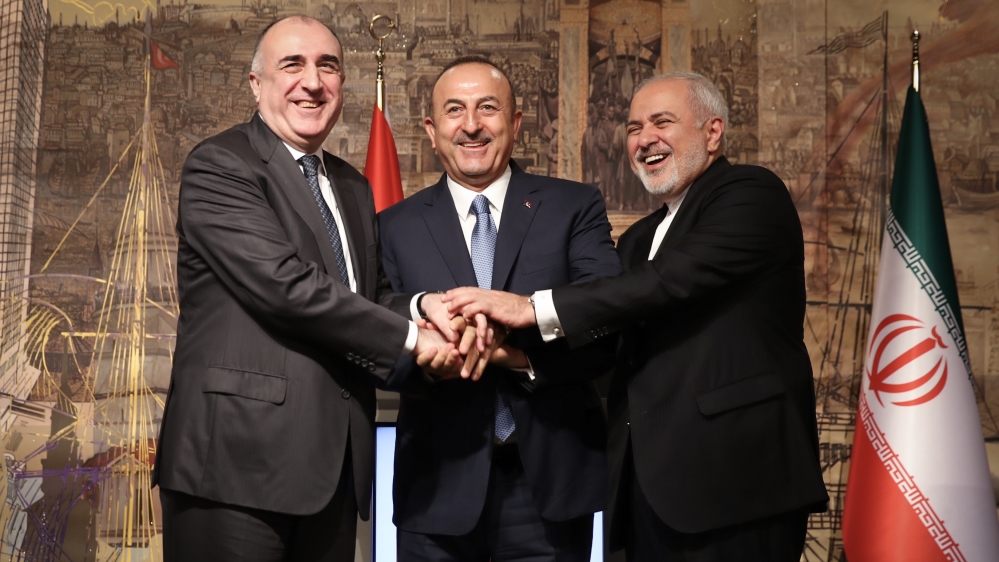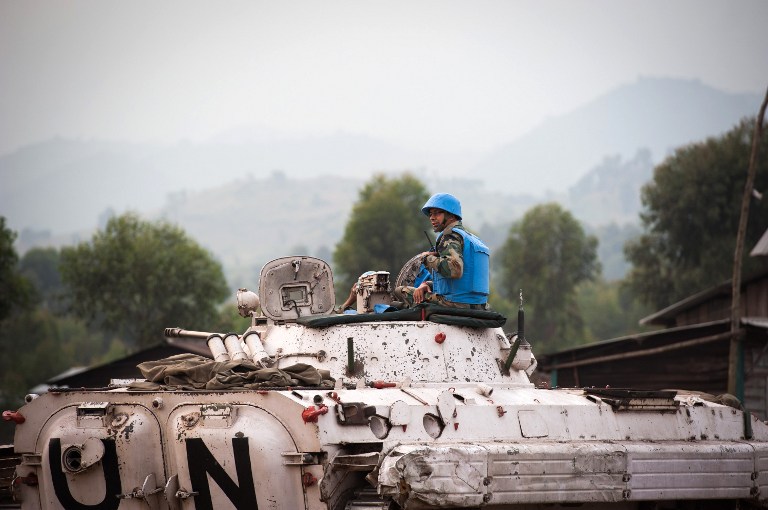
The US government has announced that it will grant temporary waivers to eight “jurisdictions”, allowing them to buy Iranian oil beyond November 5, when the second round of sanctions on the Islamic Republic takes effect.
Mike Pompeo, the US secretary of state, said on Friday the exceptions would allow the unnamed countries to import Iran’s oil at “greatly reduced levels”, with the ultimate goal of “zero” purchase from Tehran.
“These concessions are critical to ensure that we increase our maximum pressure campaign and accelerate towards zero,” Pompeo said in a conference call with reporters.
The second round of sanctions set to kick in on Monday follows a 90-day period since Washington reimposed the first wave of measures against Iran in the wake of President Donald Trump’s controversial decision in May to unilaterally withdraw the US from a landmark 2015 multinational nuclear deal.
Washington’s upcoming move is expected to have a greater impact, as it will target Tehran’s main source of export revenue: oil and gas.
In his comments to the media, Pompeo said that Iranian crude oil exports have already been reduced by more than one million barrels.
Iran analysts, however, said the announcement on waivers points to US President Donald Trump’s inability to rally the international community and reach a consensus against Tehran.
|
UN court orders US to lift some Iran sanctions |
“The Trump administration is waking up to the fact that its Iran policy has strained ties with a wide range of countries,” Esfandyar Batmanghelidj, founder of the Iranian economy website Bourse Bazaar, told Al Jazeera.
“Showing flexibility on oil imports may be a way for the US to seek more cooperation on sanctions in other areas.”
In Tehran, the decision on waivers is seen as “a victory”, as it was able to sustain its energy exports “after months of US threats that oil sales would be pushed down to zero”.
Pompeo did not identify the countries to be granted the waivers. But according to numerous reports, these include India, South Korea and Turkey.
India and South Korea are the second and third biggest buyers of Iranian oil.
Turkish Energy Minister Fatih Donmez also confirmed that his country would be granted a waiver, according to Reuters news agency. In 2017, Turkey imported 16.7 percent of its gas consumption from Iran.
The reality is that @realDonaldTrump has failed to zero on #oil exports from #Iran on November 4th. A scheme he has been advertising for months; although Iran’s oil exports have decreased./2 #OOTT @jzarif
— Reza Zandi (@R_Zandi) November 2, 2018
At a forum this week in the Qatari capital of Doha on Iran sanctions, Recep Yorulmaz, a political science professor at Ankara’s Yildirim Beyazit University, said that with or without a waiver, Turkey will continue to act on its national interest by covering its energy needs from neighbouring Iran. About 30 percent of Turkey’s crude oil imports is from Iran, said Yorulmaz.
Meanwhile, China, the biggest purchaser of Iranian oil, is still reportedly negotiating with the US over the issue. Between July 2018 to September 2018, China bought more than 600,000 barrels of oil per day from Iran, according to Stratfor, a private intelligence analysis firm. In 2017, China bought $11.9bn worth of crude oil from Iran, down almost 30 percent from 2016.
In a step seen as a concession to Trump, Beijing has decided to stop the Bank of Kunlun from handling payments from Iran, according to a Reuters report. Nearly all of China’s oil payments to Iran go through the bank.
 |
|
Transactions by foreign financial institutions with Iranian banks will also be sanctioned [File: EPA] |
Iran’s energy sector accounts for up to 80 percent of the country’s income from exports, according to the US Energy Information Administration, so a disruption could bring serious pain to its financial bottom line and its people.
Aside from the energy industry, others outfits and activities being sanctioned include:
-
Iran’s port operators and shipping industry, which is also linked to the transport of oil and gas
-
Petroleum-related products and transactions from Iran
-
Transactions by foreign financial institutions with Iran’s central bank and other banking institutions
-
Insurance and reinsurance institutions, which insure tankers that transport oil and gas
-
US-owned or controlled corporations with business activities with Iranian government and individuals
-
Individuals, whose named were previously removed from the sanctions list, could also be included
-
Iran-related SWIFT transactions could also be flagged
‘Hitting the core of Iran’s economy’
Trump has repeatedly promised “the highest level” of economic hardship against Iran, threatening retribution against countries and companies that will continue to do business with it.
|
Iran president: ‘US must stop bullying the world’ |
He has said the sanctions will continue until Tehran complies with Washington’s list of steep demands, including, among others, its retreat from military involvement in the Middle East.
Iran has rejected the US conditions, and there are no indications that the Iranian leadership has expressed interest in negotiating with Trump.
On Friday, Pompeo said that the sanctions “hit at the core areas of Iran’s economy”, adding that they are “necessary to spur changes we see on the part of the regime”.
Pompeo also said the sanctions will leave Iran with “zero oil revenue” to spend on buying arms and funding “destabilising activities”.
He said the Iranian economy is “already feeling the effects” of the sanctions, pointing to the drop of the value of Iran’s currency, the “disarray” in President Hassan Rouhani’s cabinet and protests that have taken place in recent months.
Based on the figures from the Organization of the Petroleum Exporting Countries (OPEC), Iran’s petroleum exports hit $52.728bn in 2017. Its crude oil exports stood at 2,125,000 barrels per day during the same year, while its natural gas exports reached 12.9 billion cubic metres.
Those numbers, however, have already dropped in the current year.
In India, for example, crude oil imports from Iran dropped from 690,000 barrels per day in May to around 400,000 barrels per day in August, Vandana Hari, a Singapore-based global oil market analyst, said.
“So effectively, India has more than halved its offtake from Iran,” Hari told Al Jazeera.
“I would imagine it would want to maintain it at least that level, and perhaps negotiate for more.”
Many refiners in India have also curtailed purchases because of insurance issues tied to the sanctions.
 |
| Ahead of the November 5 sanctions, Iran is trying to shore up its alliances with its neighbours [Anadolu] |
‘Winter’s coming’
As Trump’s policy collides with economic and geopolitical realities on the ground, Luciano Zaccara, a foreign policy expert at Qatar University, said the sanctions “will not be as effective”.
“There’s less consensus at this time in the international community, so the sanctions will be less powerful than the previous one,” Zaccara said during the Doha forum on Iran, pointing to Europe’s decision to defy Trump by staying with the nuclear deal.
Under the deal agreement signed in Austria’s capital, Vienna on July 14, 2015 by Iran, China, France, Germany, Russia, UK, the US and the European Union, Tehran cut down its uranium stockpile and scaled back its enrichment programme far below the level required to build a nuclear weapon. It also agreed in perpetuity to notify United Nations inspectors if and when it builds a new nuclear facility.
In exchange, UN-approved sanctions were lifted in January 2016, and Tehran was allowed to resume trading oil and gas on the international market. A total of $100bn in frozen Iranian assets was also released.
Commenting on the second round of sanctions, Reza Khaasteh, a Tehran-based journalist of Iran Front Page, said that Trump cannot abruptly cut Iranian oil from the world market, as this would cause a sharp price increase.
He said that for countries with high demand for oil and gas, “their national interests are more important to them than realising Trump’s wishes”.
“The US itself is afraid of the impact of sanctions on the oil price, so it would not be as strict as the Trump administration promised, especially ahead of the midterm elections,” Khaasteh told Al Jazeera.
“Trump well knows that ‘winter’s coming’ and he can’t just play with energy prices.”
With additional reporting by Zeenat Saberin in India












